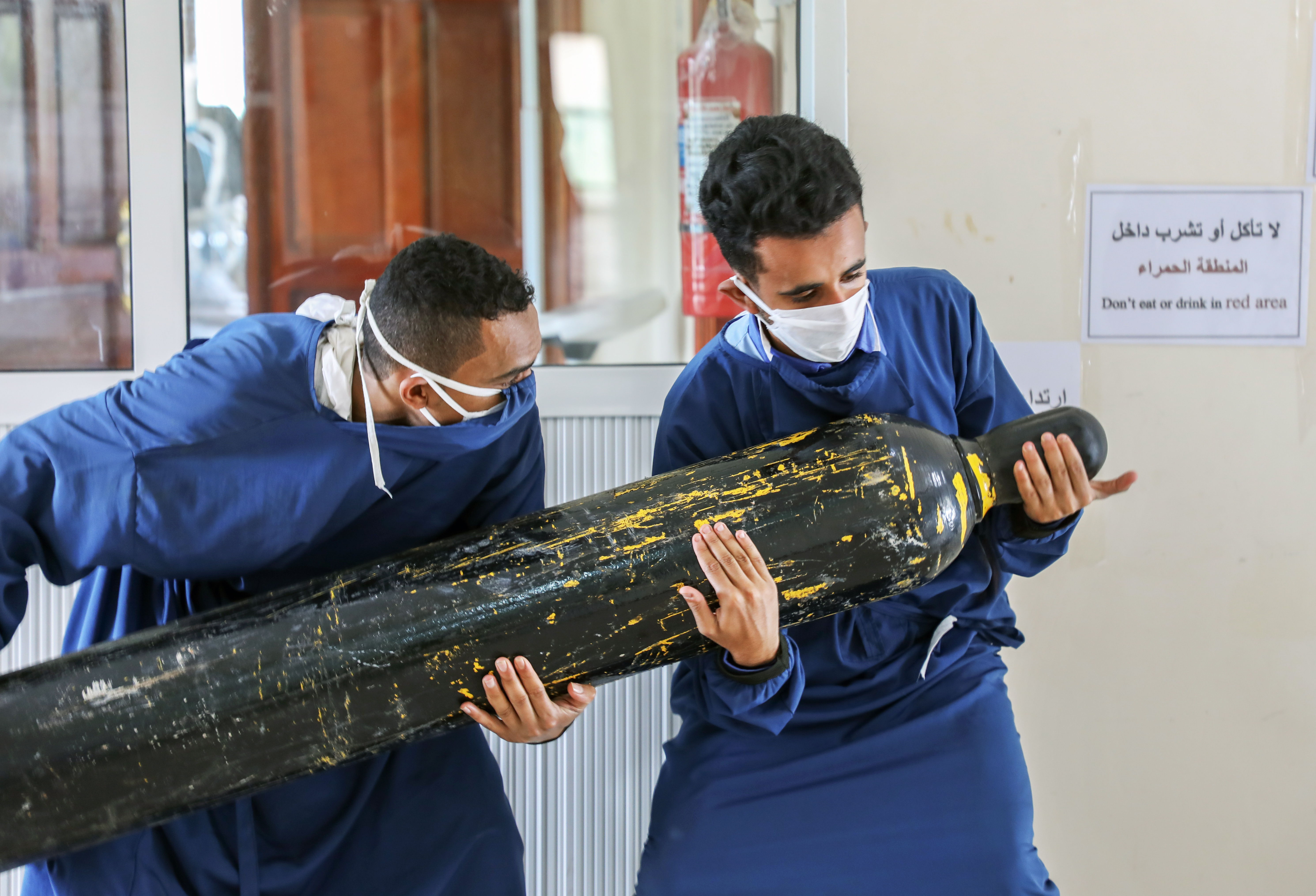Oxygen must be at the heart of the COVID-19 response.
In a briefing paper released today, titled “Gasping For Air”, the international medical humanitarian organisation, Médecins Sans Frontières/Doctors Without Borders (MSF) highlights the importance of placing medical oxygen supply, not only vaccines and PPE, at the heart of a global COVID-19 response. With vaccines unavailable in the majority of countries worldwide, people will continue to fall ill with COVID-19. Without a significant investment in oxygen infrastructure, those with severe COVID-19 but also a variety of other conditions like pnuemonia, malaria, spesis and premature babies will continue to die without access to oxygen.
“Oxygen is the single most important medicine for severe and critical COVID-19 patients, yet oxygen supply is often insufficient because infrastructure has been neglected in lower- and middle-income countries for decades,” said Dr Marc Biot, MSF Director of Operations. “COVID-19 has brought this issue into a sharp new focus. Unstable oxygen supplies kill.”
“People are being failed twice,” says Dr Biot. “Not only are they at the bottom of the inequitable global vaccine queue, but they also cannot receive care when they fall ill because they do not have access to the oxygen they need.”
Beyond the current catastrophe in India, the city of Aden, in Yemen, is another prime example of the global oxygen shortage. The MSF supported hospital was more than 100 percent occupied in recent days and has been going through 600 oxygen cylinders per day, whilst still having to turn away patients at the door.
“Numbers are stabilising now, but we know there will be another surge and there will be very sick patients who will need more oxygen than we can provide. As a doctor, it’s very distressing to see that wave after wave of COVID-19, countries remain unprepared and medical teams are left without the essential medicines they need to save lives on the massive scale required” said Dr Biot.
MSF teams working in such places are implementing creative solutions to get their patients the oxygen they so desperately need. In South Africa, oxygen concentrators, small machines that take the oxygen from the air but are not powerful enough for a critically ill COVID-19 patient, were linked together to increase their capacity. In the Democratic Republic of Congo oxygen cylinders were connected together to create a central oxygen bank. Health workers are being trained in the appropriate use of oxygen therapy. In some contexts, the prices of oxygen have been regulated to ensure that the cost does not become an unnecessary barrier as demand increases.
“Today, we don’t have the luxury of time. These kinds of practical solutions save lives and we need to see more of them. More concentrators must be provided, especially in rural areas where there are no oxygen plants, the price of oxygen must be regulated, buffer stocks and reliable supply chains for facilities that rely on cylinders from existing oxygen plants must be created and maintained” said Biot. “These steps are needed to save lives while we wait for governments to address the structural underinvestment in oxygen infrastructure that result in some patients gasping for air”.
The lack of medical oxygen in many low- to middle-income countries is not a new problem and the report sites some key studies which include the following data:
- Prior to the pandemic, oxygen supply in sub-Saharan Africa met only half of patients’ needs . In many cases, it was – and still is – only available in urban areas, leaving gaps in oxygen supply in rural settings.
- More than half of all neonatal deaths globally are due to conditions that cause dangerously low blood oxygen levels. Global estimates suggest that one in five sick newborns have hypoxemia upon admission to a hospital. Administering oxygen therapy, antibiotics, and other supportive care practices for severe neonatal infections could save the lives of more than 400,000 babies each year
- A recent study published in the Lancet found that of facilities treating respiratory infections in sub-Saharan Africa, only around one in five had access to oxygen in Mauritania and one in 10 in Niger.
- Ethiopia and Nigeria are the only two African countries to have national oxygen policy roadmaps, which include plans for large-scale oxygen production.
ENDS
.jpg)
.jpg)
.JPG)
.jpg)